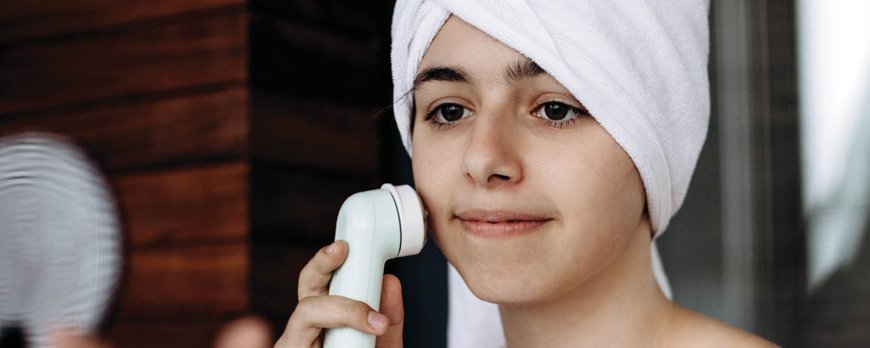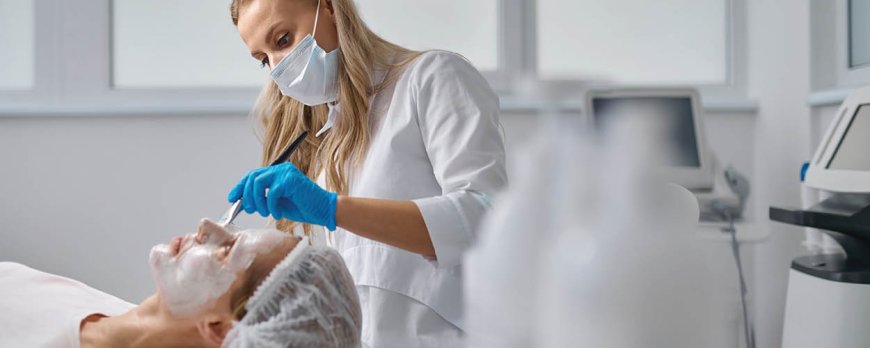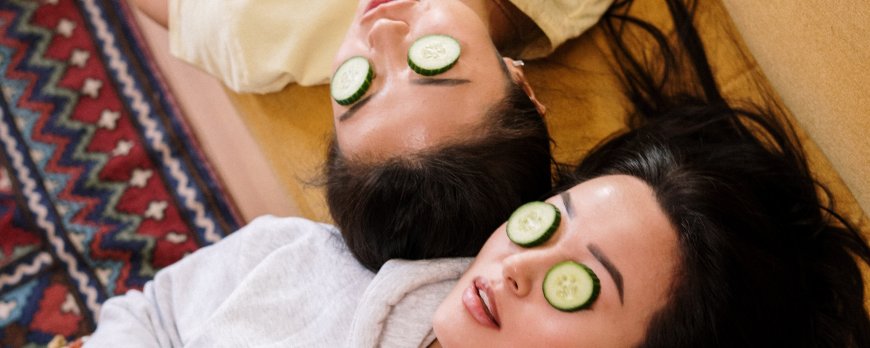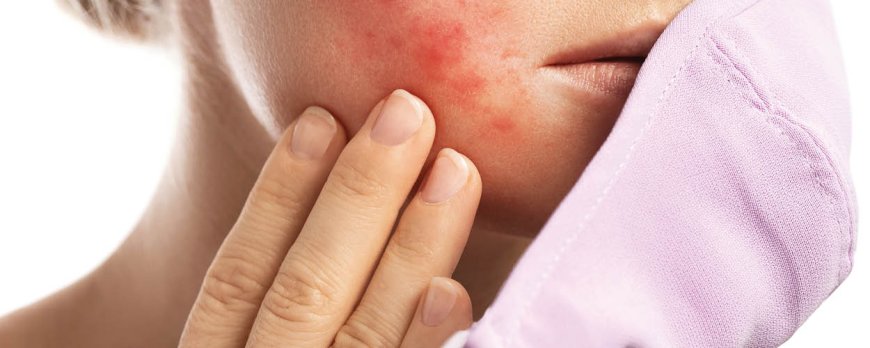How long does it take for acne to heal?
Explore answers to the question: How long does it take for acne to heal? Learn about healing durations and factors influencing skin recovery in our guide.

How long does it take for acne to heal?
Acne is a common skin condition that can be frustrating, but how long does it actually take for acne to heal? The duration of acne healing can vary significantly from person to person and depends on several factors, including the type of acne and the treatment used. It is important to understand that there is no set timeframe for acne to heal, as each individual's journey with acne is unique.
Key Takeaways:
- The healing timeframe for acne differs for each individual and depends on various factors.
- Hormonal acne, commonly experienced in the teenage years, can last until the person is in their early twenties or even persist into adulthood.
- Pimples typically take 1-2 weeks to fully develop and can take up to 6 weeks to go away on their own.
- Treatment options for acne include prescription medications like tretinoin gel and topical antibiotics, as well as over-the-counter treatments containing benzoyl peroxide, alpha hydroxy acid, or salicylic acid.
- A consistent skincare routine, avoiding touching the face, and maintaining a healthy lifestyle can help manage acne.
- Professional help from a dermatologist may be necessary for persistent or severe acne that does not respond to over-the-counter treatments.
Factors Affecting Acne Healing
The time it takes for acne to heal can vary from person to person and is influenced by several factors. Understanding these factors is crucial in managing and effectively treating acne. Here are some key factors that can impact the healing timeframe:
- Type of Acne: Different types of acne, such as whiteheads, blackheads, cysts, or pustules, have varying degrees of severity and healing time. Cystic acne, for example, is deeper and may take longer to heal compared to milder forms.
- Treatment Method: The treatment approach used can significantly affect the healing process. Prescription medications like tretinoin gel and topical antibiotics can expedite healing by reducing inflammation and targeting the underlying causes of acne. Over-the-counter treatments containing benzoyl peroxide, alpha hydroxy acid, or salicylic acid can also be effective in speeding up the healing process.
- Skin Care Routine: Establishing a proper skincare routine is essential for acne healing. Regular cleansing and exfoliation can help remove impurities, dead skin cells, and excess oil, promoting faster healing. However, it's crucial to avoid excessive scrubbing or harsh products, as this can irritate the skin and worsen acne.
Note: If necessary, you can add an H3 subheading here to provide more specific information about certain factors affecting acne healing.
Aside from these factors, maintaining a healthy lifestyle can also contribute to acne healing. Factors such as diet, stress levels, and sleep patterns can impact the skin's condition. Consuming a balanced diet, managing stress effectively, and getting enough quality sleep can help support the body's natural healing processes and improve acne outcomes.
While milder forms of acne can often be managed with over-the-counter treatments and a consistent skincare routine, persistent or severe acne may require professional help. Dermatologists can provide targeted treatments, such as prescription medications or advanced procedures, to address stubborn acne and prevent long-term scarring.
In summary, the timeframe for acne healing varies among individuals and is influenced by factors such as the type of acne, treatment method, skincare routine, and lifestyle factors. By understanding these factors and adopting appropriate measures, individuals can promote faster healing and manage acne effectively.
Types of Acne and Their Healing Time
Different types of acne can have varying healing times, with some types taking longer to resolve than others. Understanding the different types of acne can help manage expectations and determine the most appropriate treatment approach for each individual.
1. Whiteheads and Blackheads
Whiteheads and blackheads are non-inflammatory types of acne that typically heal relatively quickly. These blemishes occur when pores become clogged with excess oil, dead skin cells, and bacteria. With proper skincare and gentle exfoliation, whiteheads and blackheads usually resolve within a few days to a week.
2. Papules and Pustules
Papules and pustules are inflamed acne lesions characterized by redness, swelling, and the presence of pus. These types of acne can take longer to heal than whiteheads or blackheads, often lasting several weeks. It is important to avoid picking or popping these blemishes as it can lead to scarring or further infection.
- Treatment options for papules and pustules include topical creams or gels containing benzoyl peroxide, salicylic acid, or retinoids.
- In severe cases, a dermatologist may prescribe oral antibiotics or hormonal medications to reduce inflammation and control acne.
3. Nodules and Cysts
Nodules and cysts are deep, painful lesions that form when acne bacteria infect the deeper layers of the skin. These types of acne are the most severe and can take the longest to heal, often lasting several weeks to months. In some cases, nodules and cysts may leave behind scars even after healing.
- It is important to seek professional help from a dermatologist for the treatment of nodules and cysts. Dermatologists may prescribe oral medications, such as isotretinoin, to effectively manage severe acne and prevent scarring.
- Avoiding picking or squeezing these types of acne is crucial to prevent further inflammation and scarring.
Remember, the healing time for acne can vary from person to person and may depend on individual factors such as skin type, overall health, and adherence to treatment. If you are concerned about the duration of your acne healing or experience persistent or severe acne, consult a dermatologist for personalized advice and guidance.
Natural Healing Process of Acne
Acne follows a natural healing process that involves the development and resolution of pimples over a certain time period. For most individuals, pimples typically take 1-2 weeks to fully develop and can then take up to 6 weeks to go away on their own. However, it's important to note that there is no set timeframe for acne to heal as it varies for each individual and depends on factors such as the type of acne and the treatment used.
When a pimple forms, it undergoes several stages of development. Firstly, a clogged pore becomes inflamed and may appear as a red, tender bump on the skin. This is followed by the formation of a whitehead or a blackhead, which may take several days to reach its peak. Over time, the pimple gradually resolves as the body's natural healing processes take place.
While the natural healing process of acne can be effective, there are treatments available that can speed up the healing time. Prescription medications like tretinoin gel and topical antibiotics can help reduce inflammation and kill bacteria, while over-the-counter treatments containing ingredients like benzoyl peroxide, alpha hydroxy acid, or salicylic acid can also be effective in treating acne. It's important to establish a consistent skincare routine, avoid touching the face, and maintain a healthy lifestyle to support the healing process.
If acne persists or becomes severe, it may be necessary to seek professional help from a dermatologist. They can provide personalized advice and prescribe stronger medications to manage persistent or severe acne. Early treatment is also crucial in preventing acne scarring, as prompt intervention can help minimize the risk of permanent marks or blemishes on the skin.

Medical Treatments for Acne
Medical treatments can play a significant role in speeding up the healing process of acne. Prescription medications such as tretinoin gel and topical antibiotics are commonly used to treat acne. Tretinoin gel, a form of vitamin A, works by unclogging pores and reducing inflammation, while topical antibiotics help kill the bacteria that can contribute to acne breakouts. These medications can be effective in reducing acne lesions and preventing new ones from forming.
Over-the-counter treatments containing ingredients like benzoyl peroxide, alpha hydroxy acid, or salicylic acid can also be beneficial in speeding up acne healing. Benzoyl peroxide helps to decrease oil production and kill bacteria, while alpha hydroxy acid and salicylic acid help to exfoliate the skin and unclog pores. These treatments can be used as part of a daily skincare routine to manage and prevent acne breakouts.
It is important to note that the effectiveness of medical treatments for acne can vary depending on the individual. Some people may see improvements in their skin within a few weeks of starting treatment, while others may require several months of consistent use before noticing significant results. It is recommended to follow the instructions provided by a dermatologist or healthcare professional and to give the chosen treatment enough time to work.
In addition to medical treatments, maintaining a proper skincare routine is essential for managing acne and promoting healing. This includes cleansing the skin twice a day, using non-comedogenic moisturizers and products, and avoiding touching or picking at the acne lesions. It is also important to maintain a healthy lifestyle, including a balanced diet, regular exercise, and managing stress, as these factors can also affect acne healing. If over-the-counter treatments and lifestyle changes do not effectively manage acne, it may be necessary to seek professional help from a dermatologist for further evaluation and treatment options.
Skincare Routine for Acne Healing
A proper skincare routine can contribute to faster acne healing and help prevent future breakouts. By following a few key steps, you can effectively manage acne and promote healthy skin.
1. Cleansing: Begin your routine by gently cleansing your face with a mild cleanser twice a day. Avoid harsh scrubbing, as this can irritate the skin and worsen acne. Look for cleansers that contain salicylic acid or benzoyl peroxide, as these ingredients can help unclog pores and reduce inflammation.
2. Exfoliating:
Exfoliation is an important step in removing dead skin cells and unclogging pores. Use a gentle exfoliant with ingredients like alpha hydroxy acids (AHAs) or beta hydroxy acids (BHAs), which can help promote cell turnover and prevent the formation of new acne.
3. Moisturizing: It may seem counterintuitive, but moisturizing is essential for acne-prone skin. Look for oil-free, non-comedogenic moisturizers that won't clog pores. Moisturizing helps maintain the skin's natural barrier, keeps it hydrated, and prevents excessive oil production that can lead to acne.
4. Treating:
Consider incorporating acne treatments into your skincare routine. These can include spot treatments with ingredients like benzoyl peroxide or salicylic acid to target active breakouts. Prescription medications like tretinoin gel or topical antibiotics may also be recommended by a dermatologist for more severe acne.
5. Protecting: Always apply a broad-spectrum sunscreen with an SPF of 30 or higher to protect your skin from harmful UV rays. Sun exposure can worsen acne and lead to post-inflammatory hyperpigmentation.
Remember, consistency is key when it comes to skincare. Stick to your routine and give it time to work. If you're not seeing improvements or if your acne is severe, it's important to seek professional help from a dermatologist who can provide personalized advice and treatment options.

Lifestyle Factors and Acne Healing
Lifestyle choices can impact the healing duration of acne and should be considered alongside other treatment methods. While various factors contribute to acne, certain habits and behaviors can either exacerbate or improve the condition of the skin.
Diet:
Your diet plays a crucial role in acne healing. Consuming a balanced diet rich in whole foods, fruits, and vegetables can provide the necessary nutrients to support healthy skin. Foods high in sugar, refined carbohydrates, and unhealthy fats can increase inflammation and trigger acne breakouts. It's important to avoid greasy, fried foods and opt for a diet that is low in processed foods and high in antioxidants and vitamins.
Stress Management:
High levels of stress can worsen acne, as stress triggers the release of hormones that increase oil production in the skin. Incorporating stress management techniques, such as regular exercise, meditation, or engaging in hobbies, can help reduce stress and support the healing process of acne.
Sleep:
Adequate sleep is essential for overall health and plays a vital role in acne healing. Lack of sleep can disrupt hormone balance, increase inflammation, and impair the immune system, making the skin more susceptible to acne. Aim for 7-9 hours of quality sleep each night to optimize the healing process.
Skincare Routine:
A consistent and gentle skincare routine is crucial for acne healing. Avoid harsh cleansers or scrubbing excessively, as this can irritate the skin and worsen acne. Opt for products that are non-comedogenic and gentle on the skin. Incorporate regular exfoliation to remove dead skin cells and unclog pores. Don't forget to moisturize to keep the skin hydrated and balanced.
By making mindful choices in diet, stress management, sleep, and skincare, you can support the healing process of acne and improve the overall health of your skin. Remember, everyone's journey to clear skin is unique, so it's essential to find what works best for you and consult with a dermatologist if needed.
Importance of Professional Help
Professional help from a dermatologist may be necessary for those experiencing persistent or severe acne that is not improving with at-home treatments. While many cases of acne can be effectively managed with over-the-counter products and lifestyle changes, there are instances where professional intervention becomes crucial.
A dermatologist is trained to diagnose and treat various types of acne, including more severe forms like cystic acne. They have access to a wide range of treatment options that are not available over-the-counter, such as prescription medications and procedures. These interventions can help address the underlying causes of acne and provide targeted solutions that yield faster and more effective results.
In addition to prescribing medications, a dermatologist can also provide personalized skincare routines tailored to an individual's specific needs. They can evaluate factors that may be exacerbating acne, such as certain cosmetic products or skincare practices, and offer alternatives that are less likely to cause breakouts. Guidance from a dermatologist can help optimize a skincare regimen and prevent further aggravation of acne.
When to Seek Professional Help:
- Acne does not improve after several weeks of at-home treatments
- Acne is severe, painful, or significantly impacting your quality of life
- Acne is leaving behind scars or dark spots
- Over-the-counter products are not effective or causing excessive dryness or irritation
- Acne is associated with other symptoms, such as hair loss or menstrual irregularities
If any of these situations apply to you, it is advisable to schedule an appointment with a dermatologist. They can assess your individual case, provide a comprehensive treatment plan, and offer professional guidance to help you achieve clear and healthy skin.
Preventing Acne Scarring
Taking steps to prevent acne scarring is essential during the healing process to achieve smooth and clear skin. Scarring occurs when the skin's natural healing process is disrupted, resulting in the formation of permanent marks or indentations. By following these preventive measures, you can minimize the risk of developing acne scars:
- Treat acne early: Start acne treatment as soon as possible to prevent deep inflammation and the potential for scarring. Consult with a dermatologist to determine the most suitable treatment option for your specific acne type and severity.
- Avoid picking or popping acne lesions: Although it may be tempting to squeeze or extract pimples, doing so can cause further inflammation and increase the likelihood of scarring. Let acne lesions heal naturally or seek professional help for safe extraction.
- Protect your skin from sun exposure: When acne is present, the skin is more susceptible to sun damage, which can worsen scarring. Apply a broad-spectrum sunscreen with an SPF of 30 or higher daily, and wear protective clothing and hats when exposed to the sun.
- Maintain a consistent skincare routine: Cleanse your face gently twice a day using a mild cleanser suitable for your skin type. Avoid harsh scrubbing or using abrasive exfoliants, as these can irritate the skin and increase the risk of scarring.
If you already have acne scars:
While prevention is key, there are treatment options available for existing acne scars. These may include:
- Laser therapy: Laser treatments can help resurface the skin, diminishing the appearance of acne scars by stimulating collagen production and promoting skin regeneration.
- Chemical peels: This procedure involves applying a chemical solution to the skin, which exfoliates the outer layers and encourages new skin growth, reducing the visibility of acne scars.
- Microdermabrasion: This treatment utilizes tiny exfoliating crystals to gently remove the top layer of skin, promoting collagen production and improving the texture and appearance of acne scars.
- Dermal fillers: Injecting fillers beneath depressed acne scars can temporarily plump up the skin, making the scars less noticeable.
Seeking professional advice from a dermatologist is crucial in choosing the most appropriate treatment for your acne scars. They can evaluate your specific condition and recommend a personalized treatment plan to help improve the appearance of acne scars and restore your skin's smoothness.
The Role of Diet in Acne Healing
While the relationship between diet and acne healing is complex, certain dietary changes may support the healing process. It is important to note that individual responses to dietary changes may vary, and it is always recommended to consult with a healthcare professional or dermatologist before making any significant alterations to your diet.
To potentially aid in the healing of acne, consider implementing the following dietary recommendations:
- Increase your intake of fruits and vegetables, as they are rich in antioxidants that can help reduce inflammation and promote skin health.
- Avoid or minimize the consumption of processed foods, sugary snacks, and drinks high in refined carbohydrates, as they may contribute to increased inflammation and worsen acne symptoms.
- Include omega-3 fatty acids in your diet, found in foods such as fatty fish (salmon, sardines), walnuts, and flaxseeds. Omega-3 fatty acids have anti-inflammatory properties that may assist in acne healing.
- Ensure an adequate intake of vitamins and minerals, particularly vitamins A, C, E, and zinc, which play essential roles in supporting the immune system and maintaining healthy skin.
Remember, diet alone may not be a cure for acne, but it can potentially support the healing process when combined with other effective treatments and lifestyle modifications. It is essential to adopt a comprehensive approach and address all factors that affect acne healing.

Conclusion
The timeframe for acne to heal can vary greatly depending on individual factors, but with proper treatment and care, most cases of acne can be effectively managed and resolved.
Acne, especially hormonal acne, can last until the individual is in their early twenties or even into adulthood. However, pimples typically take 1-2 weeks to fully develop and can take up to 6 weeks to go away on their own. To expedite the healing process, various medical treatments are available, including prescription medications like tretinoin gel and topical antibiotics. Over-the-counter treatments containing benzoyl peroxide, alpha hydroxy acid, or salicylic acid can also be effective in managing acne.
In addition to medical treatments, adopting a skincare routine tailored to promoting acne healing is crucial. This may involve using gentle cleansers, exfoliating regularly, and incorporating acne-fighting ingredients into your routine. It is also important to avoid touching the face, as this can transfer bacteria and worsen acne. Maintaining a healthy lifestyle, including a balanced diet, managing stress levels, and getting adequate sleep, can also play a role in managing and preventing acne.
In some cases, professional help from a dermatologist may be necessary, especially for persistent or severe acne that does not respond to over-the-counter treatments. Dermatologists can provide personalized treatment plans, prescribe stronger medications, and recommend procedures to help manage acne and prevent scarring.
Overall, the duration of acne healing is highly individualized, but with a combination of proper treatment, skincare routine, and lifestyle adjustments, most people can effectively manage and resolve their acne.
FAQ
How long does it take for acne to heal?
The timeframe for acne healing varies for each individual and depends on factors such as the type of acne and the treatment used. Hormonal acne can last until the early twenties, while pimples typically take 1-2 weeks to fully develop and up to 6 weeks to go away on their own.
What factors affect acne healing?
The healing duration of acne can be influenced by factors such as the type of acne and the treatment used. Other factors like individual skin biology, lifestyle factors, and adherence to skincare routines can also play a role.
How long does it take for different types of acne to heal?
Different types of acne, including hormonal acne, can have varying healing times. Hormonal acne may last until the early twenties or continue into adulthood. Pimples typically take 1-2 weeks to fully develop and up to 6 weeks to go away on their own.
What is the natural healing process of acne?
The natural healing process of acne involves the development of pimples and their subsequent resolution. Pimples typically take 1-2 weeks to fully develop and can take up to 6 weeks to go away on their own, as long as no further irritation occurs.
What medical treatments can help speed up acne healing?
Medical treatments for acne, such as prescription medications like tretinoin gel and topical antibiotics, can help speed up the healing process. Over-the-counter treatments containing benzoyl peroxide, alpha hydroxy acid, or salicylic acid can also be effective.
What skincare routine can promote acne healing?
A skincare routine for acne healing should include gentle cleansing, exfoliation, and the use of non-comedogenic products. It is important to avoid touching the face, keep the skin moisturized, and use sunscreen. Consistency in skincare is key for promoting acne healing.
How do lifestyle factors affect acne healing?
Lifestyle factors such as diet, stress, and sleep can influence acne healing. A healthy lifestyle including a balanced diet, stress management, and adequate sleep can support the healing process and overall skin health.
When should I seek professional help for acne?
It is important to seek professional help from a dermatologist if acne persists or is severe and does not respond to over-the-counter treatments. A dermatologist can provide personalized treatment options to help manage and heal acne effectively.
How can I prevent acne scarring during the healing process?
To prevent acne scarring during the healing process, it is important to avoid picking or popping pimples. Applying topical treatments and keeping the skin moisturized can also help minimize scarring. Early treatment and professional advice can help prevent long-term scarring.
Does diet play a role in acne healing?
While the direct impact of diet on acne healing is still under research, some studies suggest that certain foods may contribute to acne development. It is recommended to maintain a healthy, balanced diet rich in fruits, vegetables, whole grains, and lean proteins for overall skin health.



































































































































